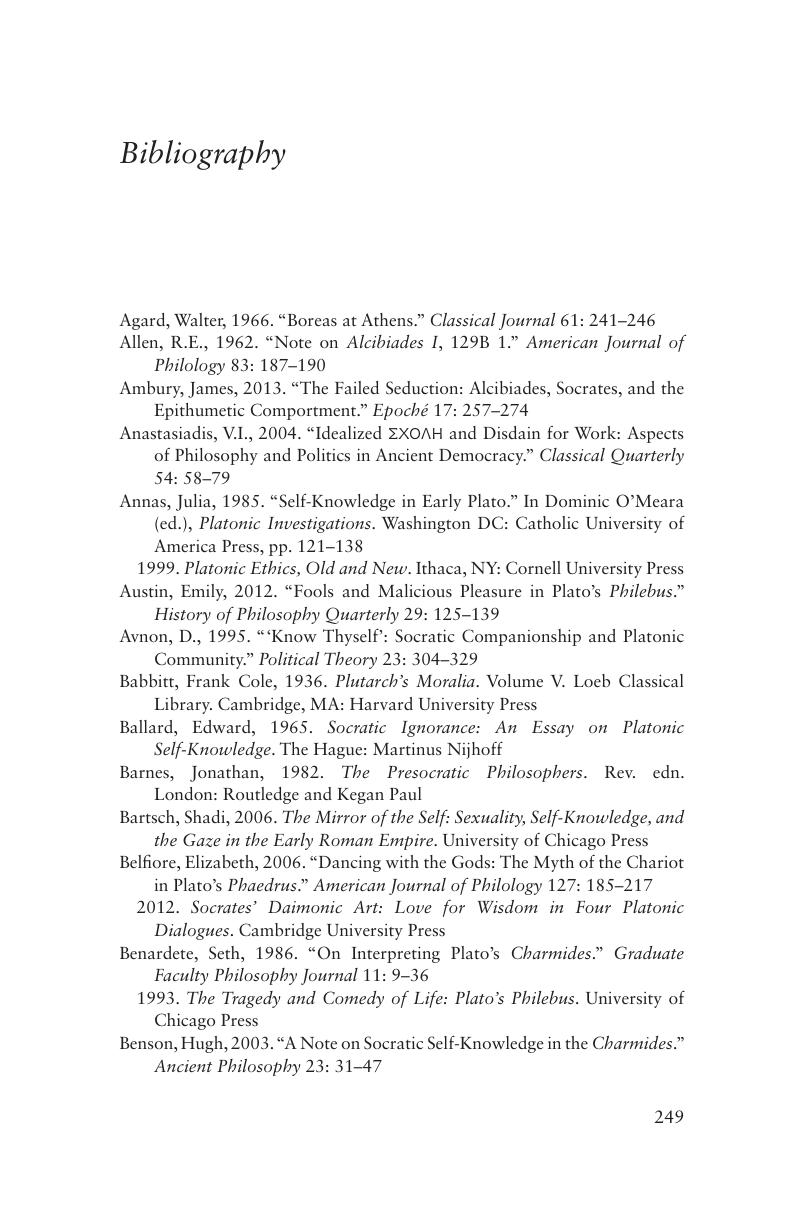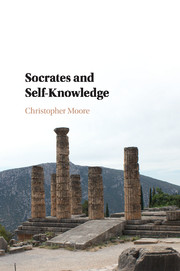Book contents
- Socrates and Self-Knowledge
- Socrates and Self-Knowledge
- Copyright page
- Dedication
- Dedication
- Contents
- Preface
- Book part
- 1 Introduction: Socrates and the precept “Know yourself”
- 2 Charmides: on impossibility and uselessness
- 3 Alcibiades: mirrors of the soul
- 4 Phaedrus: less conceited than Typhon
- 5 Philebus: pleasure and unification
- 6 Xenophon’sMemorabilia4.2: owning yourself
- 7 Conclusion: challenges and a defense
- Bibliography
- Index
- References
Bibliography
Published online by Cambridge University Press: 05 October 2015
- Socrates and Self-Knowledge
- Socrates and Self-Knowledge
- Copyright page
- Dedication
- Dedication
- Contents
- Preface
- Book part
- 1 Introduction: Socrates and the precept “Know yourself”
- 2 Charmides: on impossibility and uselessness
- 3 Alcibiades: mirrors of the soul
- 4 Phaedrus: less conceited than Typhon
- 5 Philebus: pleasure and unification
- 6 Xenophon’sMemorabilia4.2: owning yourself
- 7 Conclusion: challenges and a defense
- Bibliography
- Index
- References
Summary

- Type
- Chapter
- Information
- Socrates and Self-Knowledge , pp. 249 - 265Publisher: Cambridge University PressPrint publication year: 2015



